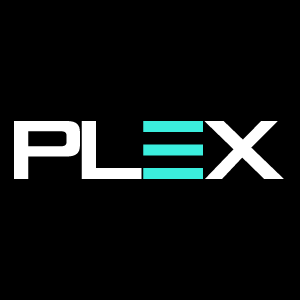

Now Available!
Get your copy of the 7th Annual State of Smart Manufacturing and hear from 300+ manufacturers in this new survey report!
Subscribe to Our Blog
For a monthly digest of expert insights, data points, and tips like the ones in this article.
Modern manufacturing operates successfully using software applications across a wide range of functions. These include Enterprise Resource Planning (ERP), Material Requirements Planning (MRP), Manufacturing Execution Systems (MES), and more.
Today, many of these platforms are designed to work with automation technology available within the Industrial Internet of Things (IIoT). This allows more accurate insights from this software by using real-time data.
But what about Supply Chain Management applications? These specialized applications include software that electronically coordinates purchasing, procuring, shipping, warehousing, and monitoring raw materials and components in a centralized platform to produce finished goods. By integrating and automating these functions into a company’s online business process, web-based Supply Chain Management (SCM) applications help companies develop more efficient production processes.
What are the Key Functional Areas of Supply Chain Applications?
Supply chain management has six critical applications: demand and supply planning, production and capacity, scheduling vendor management, and shipping and logistics. Here's a look at each.
1. Demand Planning
Demand planning is the process of predicting future demand for finished goods so that delivery can reach customers on time. It uses forecasting and modeling to sense demand so other supply chain components can be triggered to bring in materials. Plex DemandCaster Supply Chain Planning allows companies to sense and predict demand with higher accuracy than manual planning systems to increase supply chain efficiency.
2. Supply Planning
This is the process used for procuring raw materials to meet the demand forecasts. It includes purchasing, warehousing and inventory control, and other order parameters such as optimum order points, min/max considerations, and lead times. Automating these functions with software links these functions and allows for greater control, lower costs, and a higher likelihood of completing orders on time.
3. Production Planning
This application ensures that machinery, labor, and materials are available to produce orders in a timed sequence to meet delivery deadlines. It may include capacity planning, labor center utilization, and parameters for WIP. Advanced software may allow both capacity planning and rough-cut capacity planning for forecasting capacity further ahead.
4. Vendor Management
Traditional supply chain management was based on verbal agreements, faxed orders, and emails. Vendor management now includes contract auditing and vendor performance evaluation. By using software to track and monitor material end-to-end, companies can improve quality and delivery strategies and shift vendors to a partnership role with tools such as “vendor managed inventory.”
5. Shipping and Logistics
An end-to-end supply chain is only possible using advanced software and web-based applications. With this, companies can better plan logistics and shipping to prevent bottlenecks, control costs associated with transportation, and manage incoming materials smoothly.
6. Analytics
SCM software is cloud-based, so it can offer advanced analytics and algorithms to even the smallest manufacturer. As each application feeds data in immediately to the cloud, information is cleansed, analyzed, and insights are provided to users; this improves decision-making and triggers automation in the form of autonomous or semi-autonomous action. Analytics are at the center of all supply chain applications and make the system work together seamlessly.
How Supply Chain Management Applications Complement One Another
Supply chain applications work in concert to keep a company’s overall supply chain system running efficiently. Software like that offered by Plex DemandCaster Supply Chain Planning can integrate into ERP, MRP, MES, and IIoT systems to enhance those production applications and provide even higher enterprise-level accuracy across the entire supply chain.
Plex DemandCaster Supply Chain Planning offers comprehensive demand and supply planning software and specialized applications such as Inventory Forecasting and Optimization, Rough Cut Capacity Planning, Distribution Requirements Planning, and more.
If your company is looking for a best-in-class supply chain management system with robust supply chain management apps, give us a call to see how we can help.


